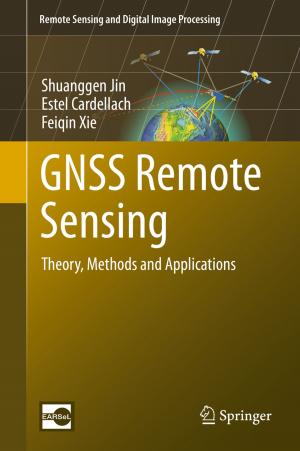Chemistry of Hydrocarbon Combustion
Kids, Natural World, Nonfiction, Reference & Language, Education & Teaching, Science & Nature, Science| Author: | David. Hucknall | ISBN: | 9789400948525 |
| Publisher: | Springer Netherlands | Publication: | December 6, 2012 |
| Imprint: | Springer | Language: | English |
| Author: | David. Hucknall |
| ISBN: | 9789400948525 |
| Publisher: | Springer Netherlands |
| Publication: | December 6, 2012 |
| Imprint: | Springer |
| Language: | English |
The scientific and economic importance of the high-temperature reactions of hydrocarbons in both the presence and absence of oxygen cannot be overemphasized. A vast chemical industry exists based on feedstocks produced by the controlled pyrolysis of hydrocarbons, while uncontrolled combustion in air is still among the most important sources of heat and mechanical energy. The detonation and explosion of hydrocarbon-oxidant mixtures can however, be a highly dangerous phenomenon which destroys lives and equipment. In order that control can be exerted over combustion processes, a complete description of hydrocarbon oxidation and pyrolysis is required. A major contribution to this is an understanding of the unstable intermediates involved and their reactions. The aim of this book is to review our knowledge of the chemistry of hydrocarbon combustion and to consider the data which are available for relevant reactions. Chapter 1 describes early studies in which the apparent complexity of the chemistry was established and the type of information required for a better understanding was defined. Experimental studies of the overall process which were carried out with the aim of establishing the sequence of stable chemical intermediates and some of the unstable species are described in Chapter 2. The limited nature of the information thus obtained showed that independent studies of individual reactions involving the unstable species were required. In Chapter 3 investigations specifically aimed at the determination of the kinetics of elementary reactions are discussed.
The scientific and economic importance of the high-temperature reactions of hydrocarbons in both the presence and absence of oxygen cannot be overemphasized. A vast chemical industry exists based on feedstocks produced by the controlled pyrolysis of hydrocarbons, while uncontrolled combustion in air is still among the most important sources of heat and mechanical energy. The detonation and explosion of hydrocarbon-oxidant mixtures can however, be a highly dangerous phenomenon which destroys lives and equipment. In order that control can be exerted over combustion processes, a complete description of hydrocarbon oxidation and pyrolysis is required. A major contribution to this is an understanding of the unstable intermediates involved and their reactions. The aim of this book is to review our knowledge of the chemistry of hydrocarbon combustion and to consider the data which are available for relevant reactions. Chapter 1 describes early studies in which the apparent complexity of the chemistry was established and the type of information required for a better understanding was defined. Experimental studies of the overall process which were carried out with the aim of establishing the sequence of stable chemical intermediates and some of the unstable species are described in Chapter 2. The limited nature of the information thus obtained showed that independent studies of individual reactions involving the unstable species were required. In Chapter 3 investigations specifically aimed at the determination of the kinetics of elementary reactions are discussed.















